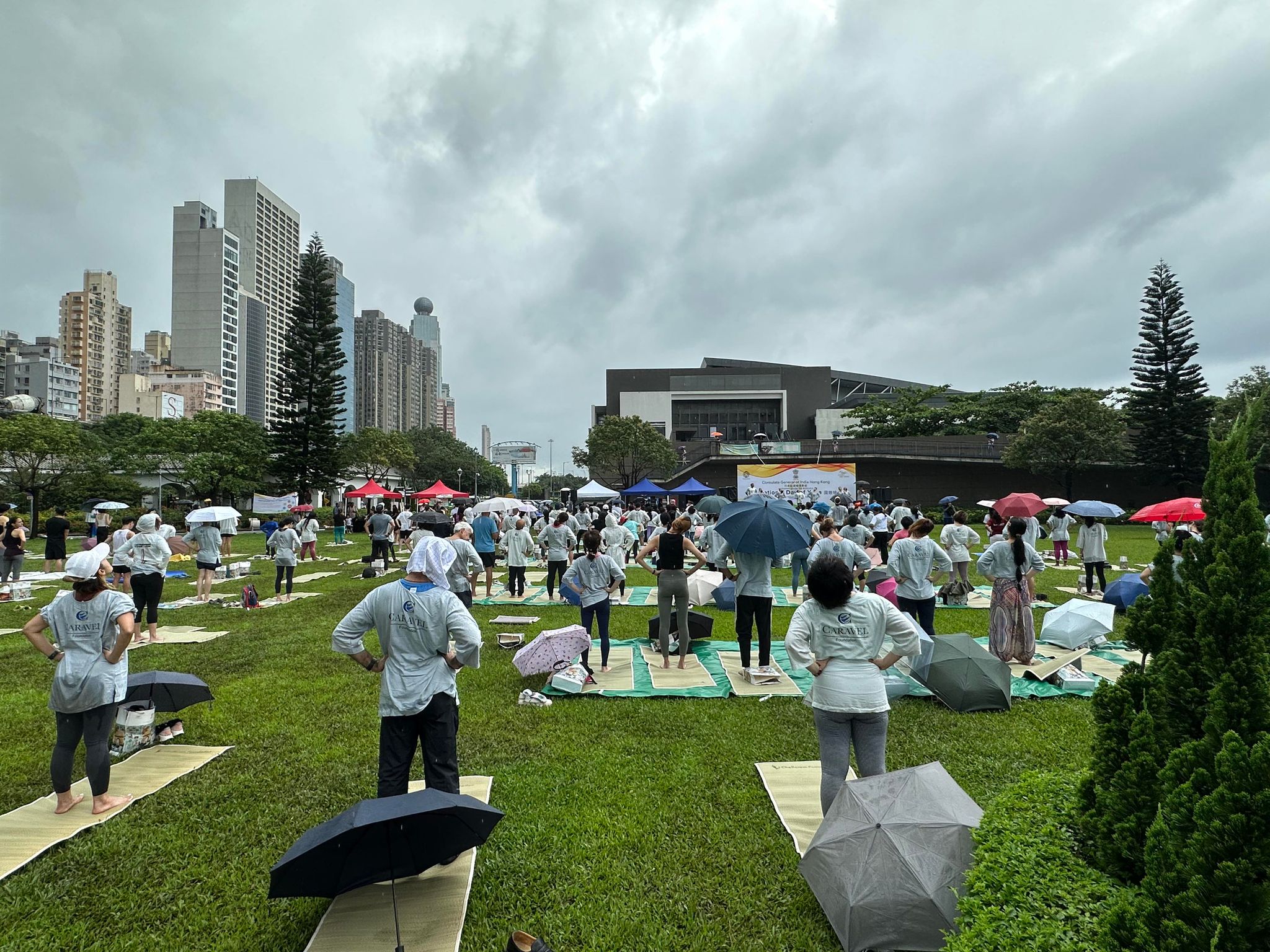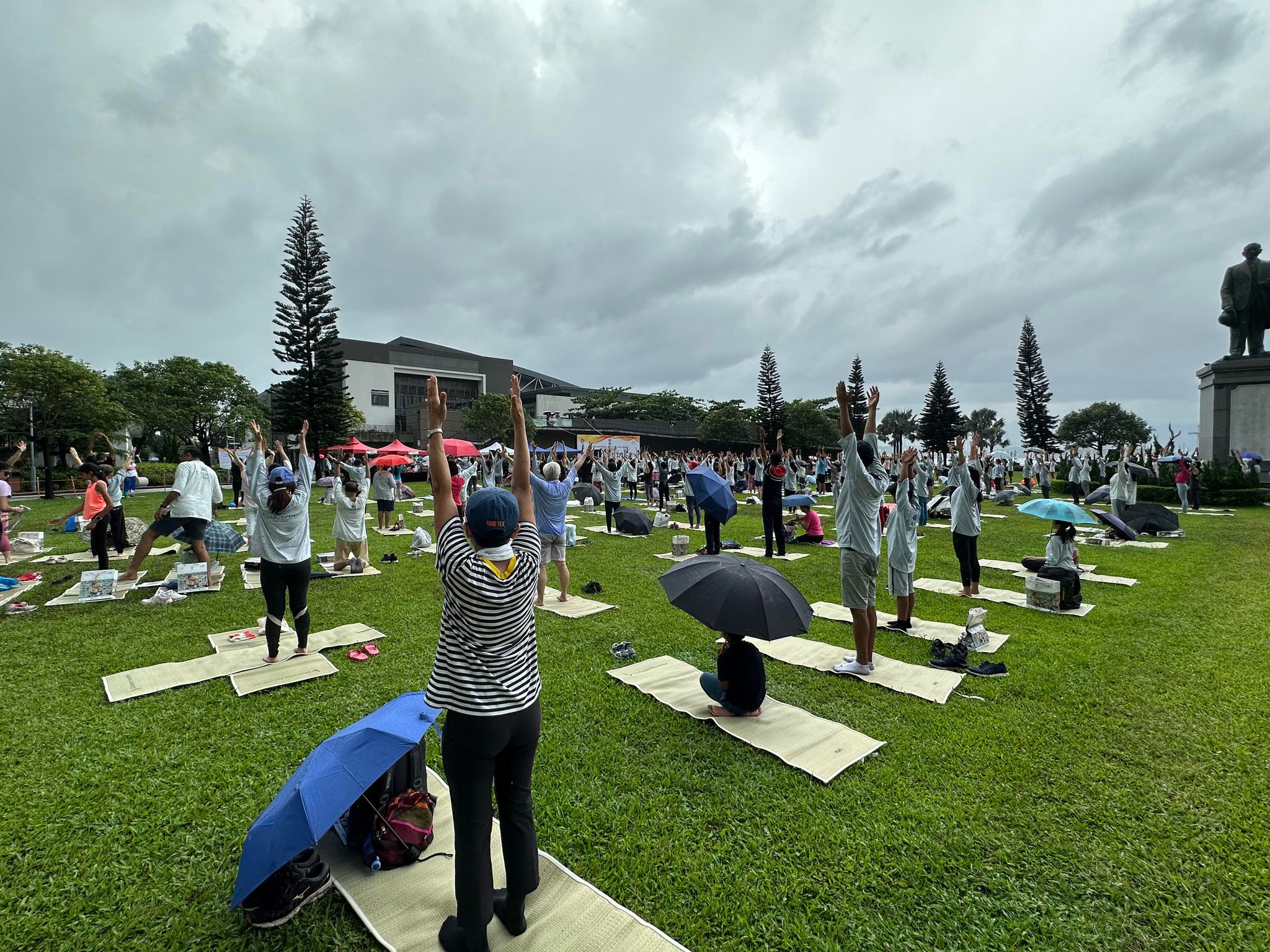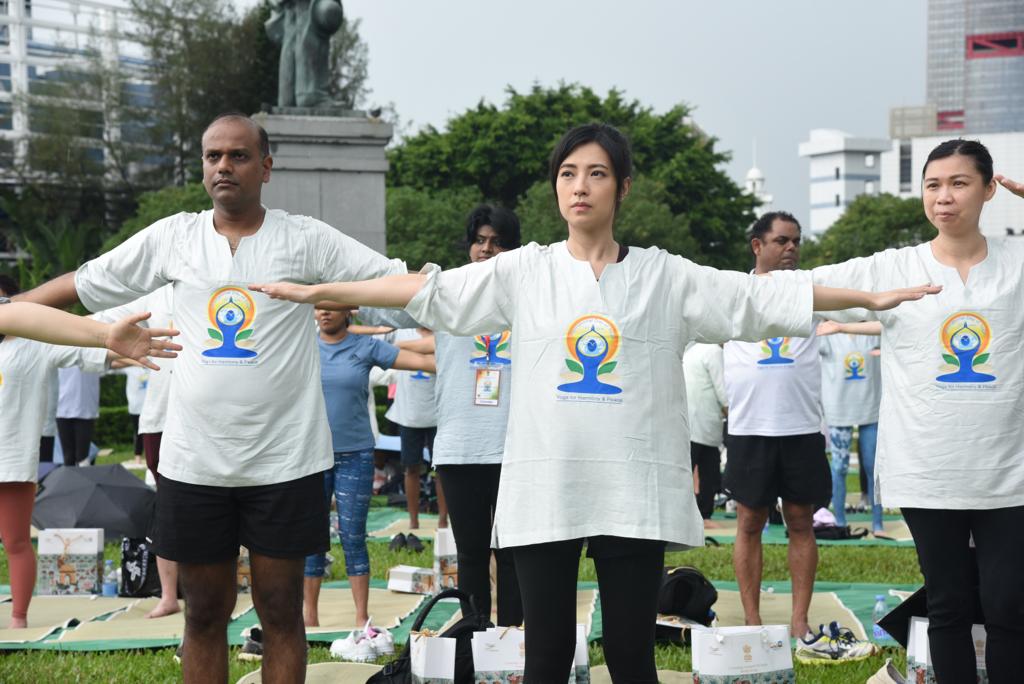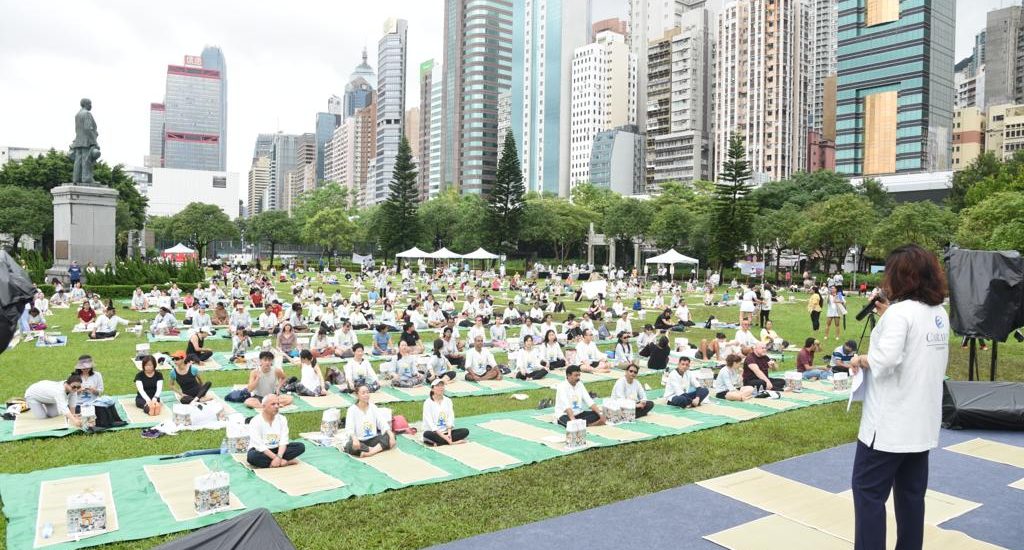I am not a yoga expert, or even a beginner, but it was my privilege to have been invited to cover the energy, atmosphere, and sheer fun of this year’s International Day of Yoga (17 June) at Sun Yat-sen Memorial Park – among the most ideal spots on Hong Kong Island to host an outdoor yoga event en masse. Satwant Khanalia, the consul general for the Indian consulate in Hong Kong, urged that attendees see this occasion as marking a new beginning, especially as this is the first International Day of Yoga since the pandemic. “Let’s approach this Yoga Day with a sense of gratitude and hope, in oneness with the elements all around us,” she declared.
When doing yoga outdoors, one hopes that there will not be heavy rainfall as a basic prerequisite, along with all the muddy and slippery grass and soil that such rain entails. The weather went ahead with its showery business on the 17th, as heavy intermittent rain fell and soaked yoga practitioners throughout the day’s program (which had already been shifted from the early morning to the early afternoon at the advice of the Hong Kong Observatory).
Nevertheless, hundreds of attendees braved the heavy rain, from the entire team of consuls at the Indian consulate to representatives of the Indian community in Hong Kong, yoga teachers of all cultural backgrounds, and everyday Hongkongers that love and practice yoga.

In her speech on stage, the Indian consul general declared that the theme for this year was “Yoga for Vasudhaiva Kutumbakam” – yoga in the name for connecting the world as one family. “Caring for the well-being of all is an intrinsic part of caring for oneself and is fundamental to the Indian ethos that guides our policies and actions. For instance, even during the difficult pandemic period, not only did India produce enough COVID vaccines for its own people but also supplied vaccines to 99 countries and UN health workers and peacekeepers,” said Ms. Khanalia.
The Indian consulate has also been promoting, as a complement to yoga, ayurveda and ayurvedic foods as part of its initiative to have the UN declared 2023 as the International Year of Millets. The Indian government’s hope is that the Indic civilization’s heritage of ancient wisdom and health can be shared to all nations for promoting physical and spiritual wellbeing. Ms. Khalania also said that through the International Year of Millets, India was shining a spotlight on the fundamentals of healthy living and bringing people back to consuming local, seasonal and traditional foods and grains. “Let’s all incorporate these elements in our daily lives for holistic wellness,” she suggested, emphasizing that holism was another core consideration of traditional Indian health prescriptions.

In Delhi, the Indian government and PM Narendra Modi has promoted the concept of “LiFE” – Lifestyle for Environment. Ms. Khanalia explained that the concept was the adoption of a sustainable lifestyle by “using sustainable fabrics, conserving energy, avoiding single-use plastics and recycling.” Human beings and nature are interconnected and just as we care about our health, a responsible global community would also be concerned about the health of the planet.
The LiFE initiative reminded me of one of the two core rubrics of the Samvad initiative. This rubric is environment consciousness, the other being conflict avoidance. Since 2015, Mr. Modi has seen these two rubrics as common threads of dialogue between Hinduism and Buddhism, and Samvad has served as a platform for Hindu-Buddhist dialogue about these issues. At the heart of this discussion is a deep appreciation for the profound interconnectedness that links not only all beings, but all issues pertaining to human flourishing, from the political to the ecological to the economic to the religious.

In 2017, the second Samvad dialogue defined a key goal as moving from advocating for mere “state environmental regulations to mass ecological consciousness” (Samvad), or in Mr. Modi’s words, “harmonious environmental consciousness.” This has been reiterated at numerous points thereafter, including in 2019 at Samvad III in Ulaanbaatar, Mongolia. Yoga (and other movements that study the holistic health of the human being and the planet) are part of the ongoing Hindu-Buddhist objective to bring about a tradition of Indian diplomacy, of interconnectedness that emphasizes human cooperation, ethics, universal responsibility, and prosperity for all.
See more
Related features from BDG
Third Samvad Conclave Unites Buddhist Leaders Across Asia in Ulaanbaatar
Thoughts on the Global Hindu-Buddhist Initiative in Delhi, 3–4 September 2015
Buddhistdoor View: India’s Buddhist Diplomacy
Related blog posts from BDG
An Indispensable Cultural Export: The International Day of Yoga in Hong Kong, 17 June 2023


